New Zealand focused on closer China ties
New Prime Minister Chris Hipkins has reaffirmed his commitment to Beijing during maiden trip to Canberra as leader.
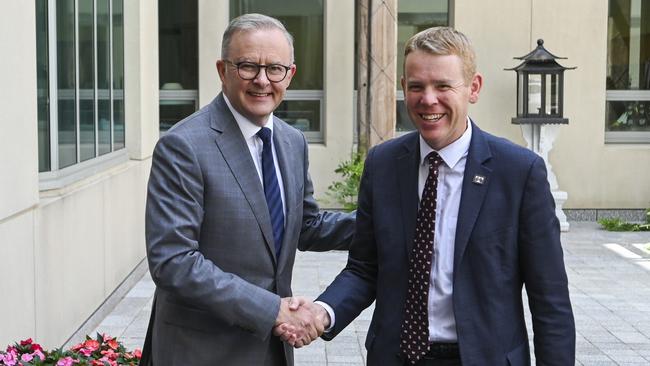
New Zealand’s new Prime Minister Chris Hipkins has described China as “an incredibly important partner” and declared his government is determined to strengthen its relationship with Beijing.
Mr Hipkins, who had a working lunch with Anthony Albanese in Canberra on Tuesday, declined to call out undue Chinese influence in the Pacific during a joint press conference at Parliament House, saying only that his government would disagree with Beijing “from time to time”.
“China is an incredibly important partner for New Zealand, a very important trading partner, and a partner in other areas as well,” he said.
“That doesn’t mean there aren’t going to be areas where we disagree from time to time, and we’ll continue to voice our disagreements with China when that happens, and we’ll always continue to strive to strengthen that ongoing relationship.”
Mr Hipkins’ predecessor Jacinda Ardern was for a long time reluctant to criticise bad behaviour by China, but in the latter months of her leadership declared there were issues “on which China and New Zealand do not, cannot, and will not agree”.
Mr Hipkins also defended New Zealand’s relatively low defence budget of just over 1 per cent of GDP, which is dwarfed by Australia’s at more than 2 per cent of GDP.
He sidestepped a question of whether NZ was relying on Australian protection, saying the country was poised to make “some very significant investments in the defence portfolio”.
Mr Hipkins reiterated New Zealand’s nuclear-free policy, warning Australia’s future nuclear submarines would be unable to visit the country’s ports.
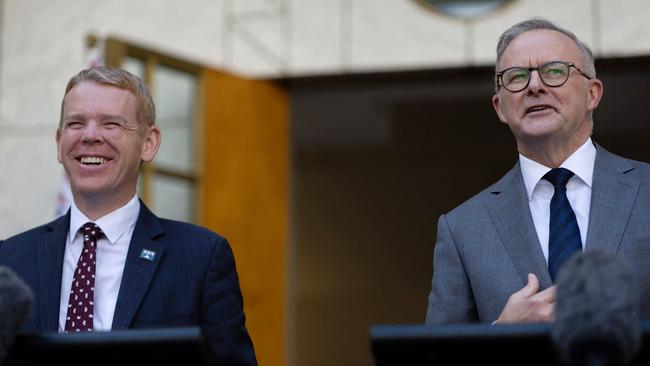
He declined to say whether New Zealand was interested in joining the AUKUS initiative for the non-nuclear aspects of the partnership, including its push to develop new artificial intelligence and cyber capabilities.
“Our foreign policy position hasn’t changed just because there’s a change of prime minister,” Mr Hipkins said.
“Australia, the US and the UK are incredibly important security partners for New Zealand, but our nuclear-free policy hasn’t changed either.”
Mr Hipkins later sat in on question time in the House of Representatives, rounding out his first overseas trip after taking over from Ms Ardern following her snap retirement last month.
Both leaders remarked that Australia and New Zealand were “family”, and the countries would continue working closely together. “New Zealand has no closer friend or partner than Australia,” Mr Hipkins said.
The meeting was the first for years between the countries’ leaders that hasn’t involved complaints by the New Zealand side over Australia sending back Kiwi-born criminals after their sentences have been served.
Under a recently announced change negotiated with Ms Ardern, the Department of Home Affairs will consider the length of time a non-citizen criminal has spent in Australia before deciding to deport them.
Mr Albanese said it was a “common sense approach” that would “bear in mind what a person’s ties are to Australia when assessing these cases”.
“There’s a big distinction between someone who comes to Australia, either as a teen or an adult and commits offences, and someone who has zero connection back in New Zealand, who might have come here as an infant,” the Prime Minister said.


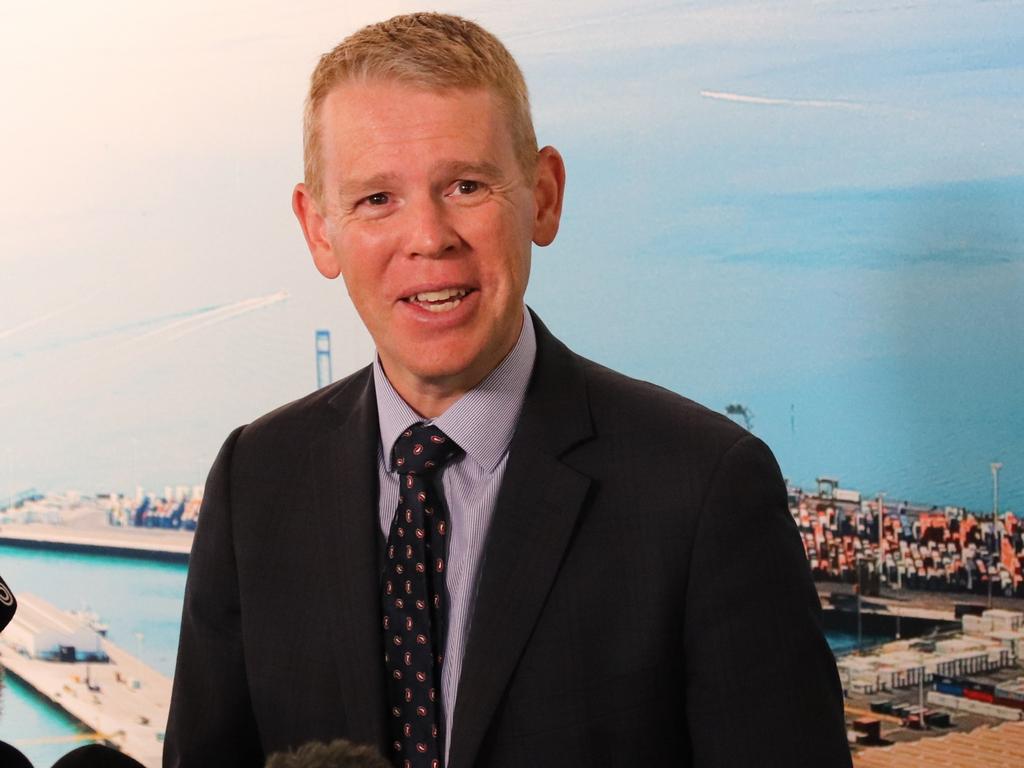
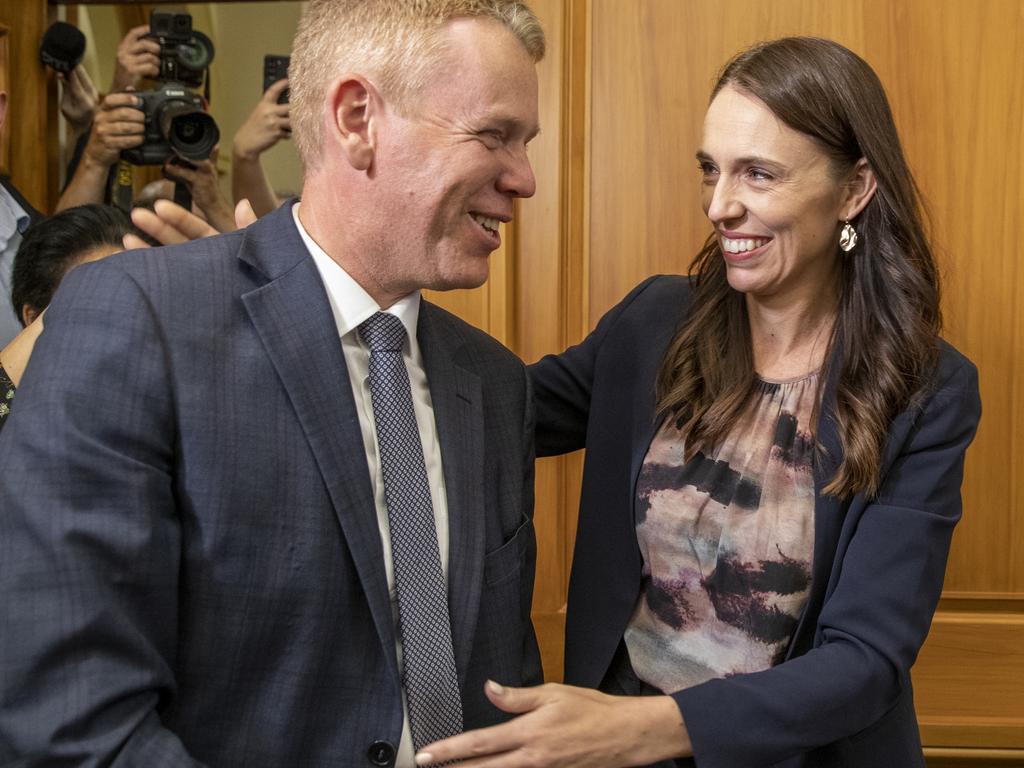
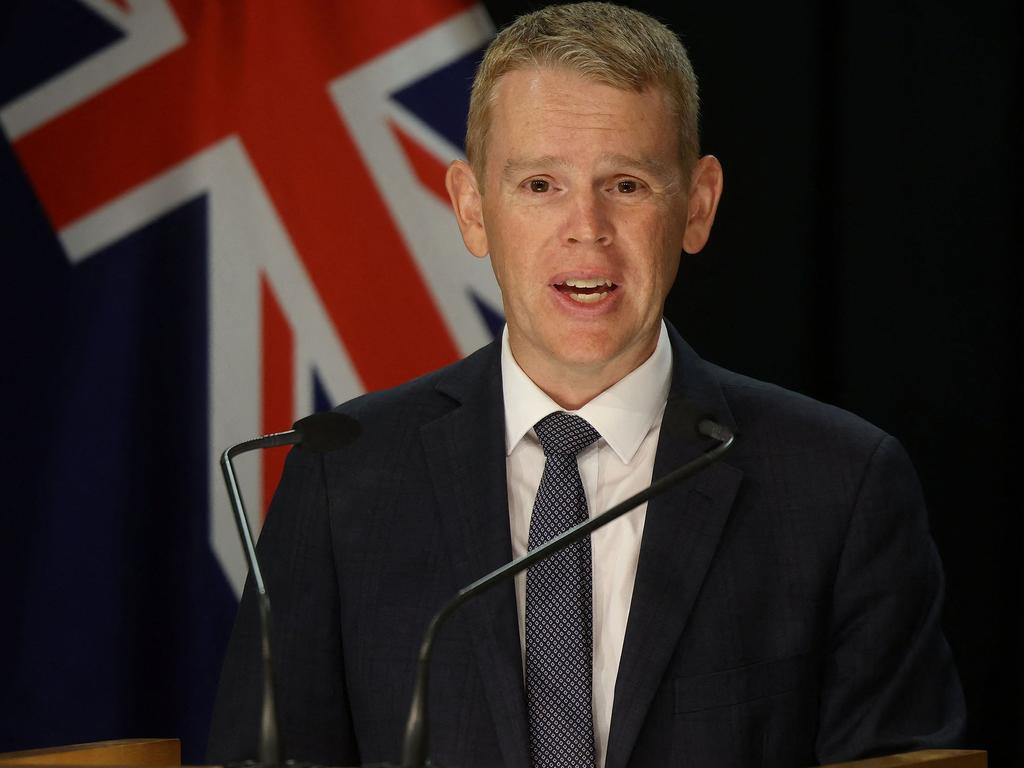



To join the conversation, please log in. Don't have an account? Register
Join the conversation, you are commenting as Logout